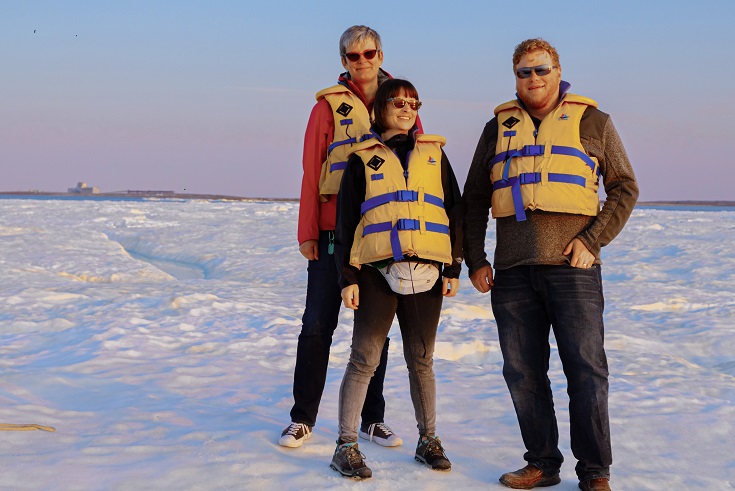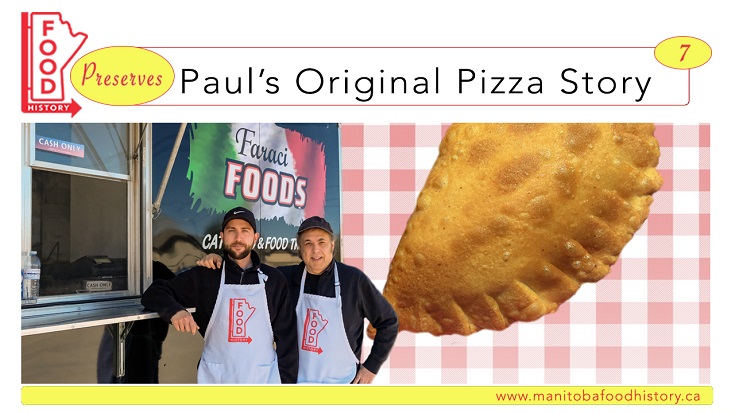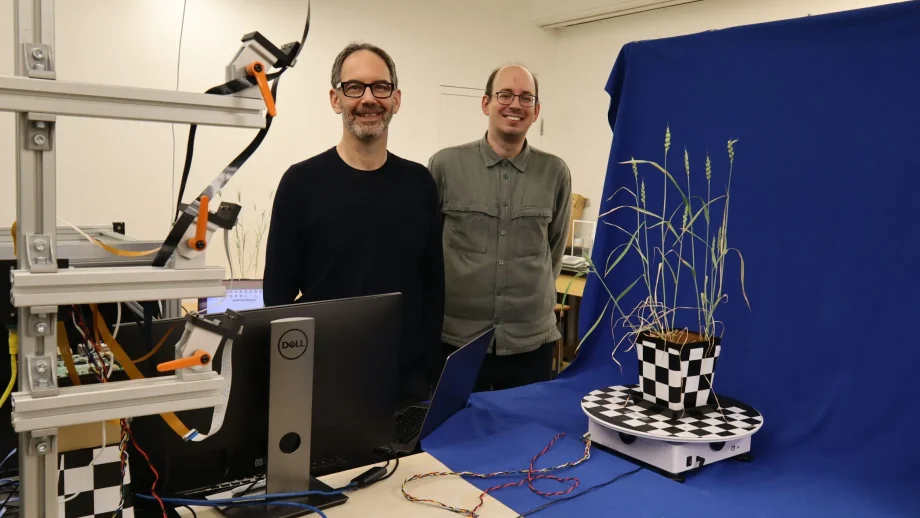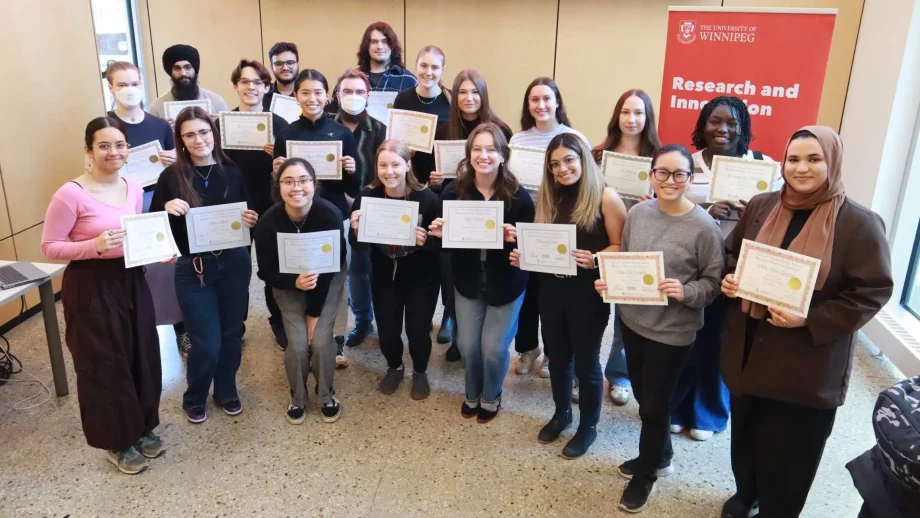
In June 2019, the Manitoba Food History research team travelled to Churchill, where they had opportunities to digitize records and learn how greens are grown in the north (photo supplied).
A full “pantry” of data collected last summer has kept Dr. Janis Thiessen, Kent Davies, and Kimberley Moore’s SSHRC-funded Manitoba Food History project trucking along despite the need to work remotely.
“We have a bulk of interviews, conducted pre-COVID, that we are still processing,” said Davies. “It takes a lot of time to archive and transcribe oral histories, to make contextual documents, and to turn those into forms of digital scholarship.”
Since they began working remotely, the Oral History Centre (which provides consultation, training and support for oral history projects) has produced two episodes of Preserves, the podcast of the Manitoba Food History Project.
The most recent of these, Paul’s Original Pizza Story, was published May 21, 2020. It examines the Manitoba origins of the pizza pop, and features the work of UWinnipeg students Emily Gartner and Trent Brownlee, who conducted interviews as part of Thiessen’s course, History 3504: The Manitoba Food History Truck.
This class not only introduced students to food history, oral history, and public history, it created an innovative space for new content to develop, such as the Camp Cuisine story map published in February 2020, and the forthcoming Red Ember Pizza, to name a few.
“We have a backlog of all these amazing stories coming out of Manitoba,” said Davies. “We now have time to tell those stories.”

Episode 7 of the Manitoba Food History Preserves podcast launched May 21, the second to publish while the team works remotely. (photo supplied)
Joining the Manitoba Food History research team for summer 2020 are undergrad research assistants Amber Ali and Michaela Hiebert, who will be listening to pre-recorded oral history interviews to prepare metadata, summaries, and timed logs that make the audio recordings accessible to researchers.
Indigenous Summer Scholar Caitlin Mostoway-Parker will also be joining the team, transcribing recipes from audio recordings, researching and recording addresses of diner-style restaurants, and searching digital newspapers for relevant articles.
“I have always been very interested in history, and am looking forward to broadening my research skills as I prepare for grad school this fall,” said Parker.
A typical spring/summer season would have seen the team driving across Manitoba in a food truck conducting mouth-watering, in-person interviews. With COVID-19 moving their research into home offices, they shifted focus to the abundance of research already conducted; preparing podcasts and story maps, and compiling a peer-reviewed history book of photos, maps, and recipes that provide new insight into the history of Manitoba.
Thiessen says that studying oral history gives her a window into other life experiences and a better understanding of the past. This understanding is made richer through collaboration.
“Working with Kent and Kim, who have such different areas of expertise from me, has been a real gift,” she said. “Oral history gives me a way to have a conversation with a total stranger, and I always love it because I learn things about people’s lives that are completely different from my own.”
The mobile nature of the project and the collaborative working style of the team has enabled them to adapt quickly.
“We had a solid foundation as a team for a situation like this because, as much as we rely on each other and constantly communicate about the project and what needs to happen next, we are all kind of wildly independent,” said Moore. “There is no typical day.”
Moore finds it extremely satisfying when the team is able to collaboratively learn about food in Manitoba, find innovative ways to present that to a wider audience, and bring these lessons to the Oral History Centre classroom.
“I really like the puzzle of it all. Every time we have an idea about something we want to do, or an outcome we want for this project, the first thing we ask ourselves is, what do we have to do to make this happen?,” she said. “And it’s been great because we have figured out how to make a lot happen.”
Since the team began researching the history of Manitoban food manufacturing, production, retailing, and consumption in 2017, they have had to pivot to meet the technological and mechanical challenges of interviewing people while cooking a meal on a food truck.
“The food truck is a marvelous and volatile beast where you don’t always get to dictate what happens, so a fair bit of this project is just dealing with situations as they arise,” said Moore. “Similarly, with COVID, you can’t change the fact of this situation, but you can find ways to cope.”
A lot of the work they had planned to do in year four has been pushed ahead, which could change the future of the project.
“We have an opportunity to reflect on what we’ve already done,” said Moore. “This will help shape what we do next.”




